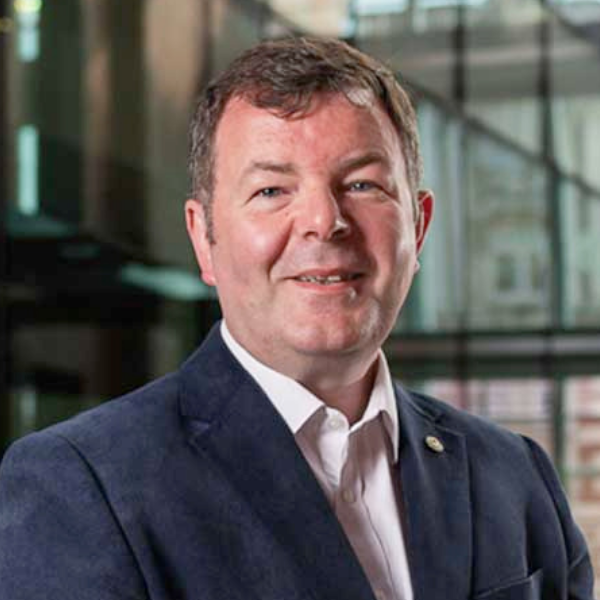NIHR Manchester BRC announces new Director appointment
Professor Anne Barton has been formally appointed as the Director of the National Institute for Health and Care Research (NIHR) Manchester Biomedical Research Centre (BRC).
She will take over the role from Professor Ian Bruce who will be stepping down in March 2024 to become Pro-Vice-Chancellor for the Faculty of Medicine, Health and Life Sciences at Queen’s University Belfast.
Professor Barton is an Honorary Consultant Rheumatologist at Manchester University NHS Foundation Trust (MFT) and Professor of Rheumatology and Director of the Centre for Musculoskeletal Research, a EULAR Centre of Excellence, at The University of Manchester (UoM).
An NIHR Senior Clinical Investigator, Professor Barton was Deputy Director of Manchester BRC (2017-22) and is currently Inflammation Cluster Lead and Rheumatic and Musculoskeletal Diseases Co-Theme Lead. She will take up this new role from April 1 2024.


Mark Cubbon, Group Chief Executive at MFT, which hosts Manchester BRC, along with UoM, said: “As the largest BRC outside the South East of England, Manchester BRC has the clinical and geographical reach to improve the health and wellbeing of millions of people across our region. Under Professor Barton’s leadership I know the BRC will continue to develop and deliver even more cutting-edge treatments for patients and tackle the health inequalities faced by our wider population.”
Professor Graham Lord, Vice-President and Dean of the Faculty of Biology, Medicine and Health at UoM, said: “As Manchester BRC’s University partner, we are undoubtedly proud of the academic clinical research that has led to real-world impacts, improving diagnosis, testing, and treatments. I know Professor Barton will provide the skills and expertise to enable the BRC to continue to lead the way nationally and internationally in research, innovation, and life sciences.”

Professor Barton said: “I am delighted to take up the position of Director of Manchester BRC, the beating heart of translational research across Greater Manchester, Lancashire and South Cumbria, which transforms scientific breakthroughs into diagnostic tests and life-saving treatments for patients.
“Manchester BRC’s mission is to drive health improvements and personalised health and care through cutting-edge research and, together with public partners, industry collaborators, and colleagues across all our partner organisations, I am looking forward to building on our successes and delivering our vision to bring lasting change for all.
“I would like to say thank you to Professor Ian Bruce whose leadership since 2017 was crucial in ensuring two successful BRC bids for Manchester, expanding our research themes and our geographical reach, and we wish him all the best.”

Professor Ian Bruce said: “Professor Barton is an internationally recognised clinician scientist in the field of inflammatory rheumatic disease research and has held a number of important leadership roles in our BRC, the University and in national and international research consortia.
“I have no doubt that Manchester BRC will go from strength to strength under Professor Barton’s leadership and I look forward to seeing its continued success and growth over the next few years.”
Lisa Miles, Manchester BRC Operational Director, said: “We are looking forward to working with Professor Barton and continuing to deliver on our objectives, by embedding early translational research into our communities, building a unique national powerhouse for innovation, and accelerating the impact of our research.”
Professor Barton joined UoM following the award of an MRC Clinical Training Fellowship (1998-2001) and a subsequent Wellcome Trust Advanced Fellowship (2003-2007). She was promoted to full Professor in 2010 and leads the Versus Arthritis Centre for Genetics and Genomics.

Her current research focusses on precision medicine; specifically, investigating the factors that influence treatment response to drugs in patients with rheumatoid and psoriatic arthritis (PsA). This incorporates work with colleagues in psychology to explore issues surrounding patient-centred factors, such as adherence.
She also leads work aimed at identifying genetic factors that differentiate PsA from psoriasis to develop screening to identify those patients at highest risk of PsA.